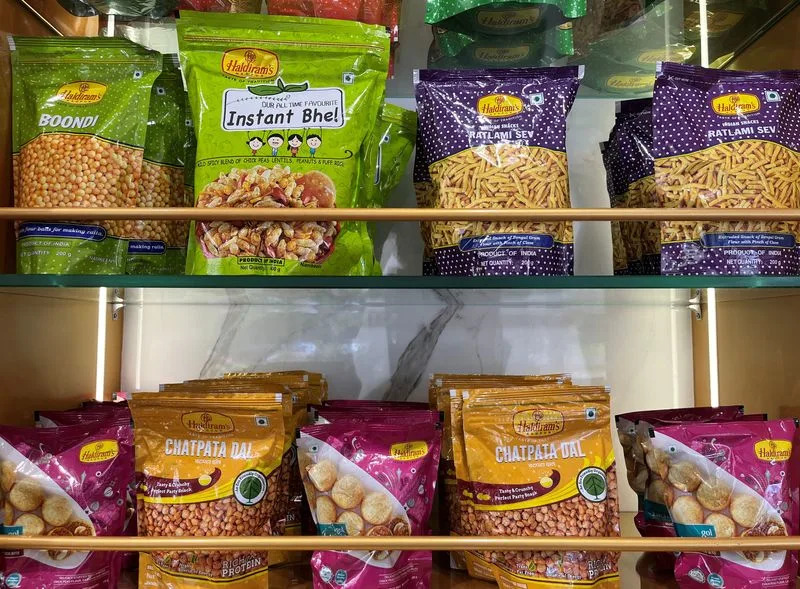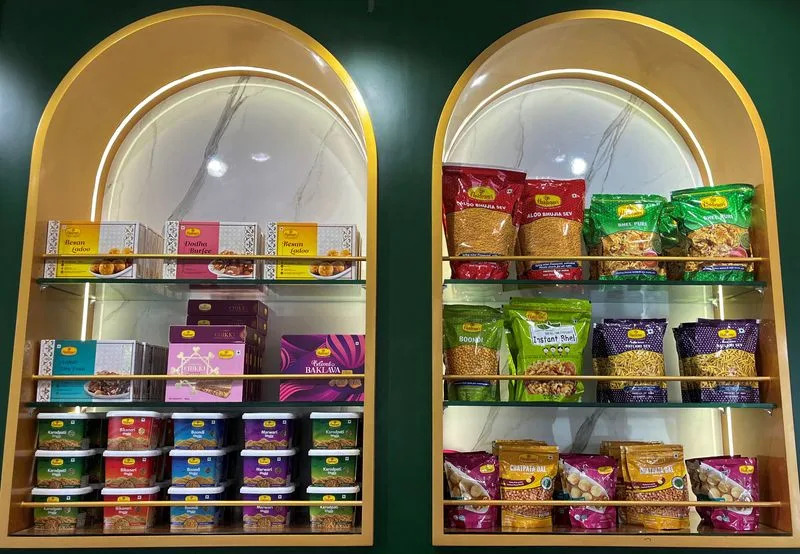THE 1%
The Mideast Power Brokers Who Control $2.7 Trillion in Assets

Adveith Nair
Wed, September 6, 2023
(Bloomberg) -- The Middle East is home to some of the world’s largest sovereign wealth funds. Overseeing close to $3 trillion of assets, these investing giants have become key players in global dealmaking.
Flush with cash from last year’s commodity boom, entities from Abu Dhabi Investment Authority to Saudi Arabia’s Public Investment Fund have splashed out billions of dollars on everything from technology and finance to sport, in countries spanning Australia to Canada.
That’s attracted top names in global finance, from Ray Dalio to Rajeev Misra, who’re working closely with the influential heads of these funds.
Sheikh Tahnoon bin Zayed Al Nahyan
The Abu Dhabi royal, born in the late 1960s, helms a $1.5 trillion empire encompassing two wealth funds, the region’s most important private investment firm, the country’s largest lender and its biggest listed corporate. He’s also one of two deputy rulers in Abu Dhabi, the United Arab Emirates’ national security advisor and brother to its president, giving him more clout than most others in the region.
Abu Dhabi Investment Authority, helmed by Sheikh Tahnoon since March, has been the second-biggest spender among the main Middle East wealth funds since the start of 2022, according to data from Global SWF. As chairman of ADQ, Sheikh Tahnoon also oversees a fund that’s snapped up assets worth billions in Egypt and pledged investments to help shore up Turkey’s economy. It’s also been at the forefront of deals orchestrated with an eye on food security, including an agreement to buy a stake in Louis Dreyfus Co.
Sheikh Mansour bin Zayed Al Nahyan
A brother to Sheikh Tahnoon and UAE President Mohammed bin Zayed, Sheikh Mansour is perhaps best known globally as the owner of Manchester City Football Club. He’s one of the emirate’s most influential businessmen.
The royal, also UAE vice president and deputy prime minister, was named chairman of the $276 billion Mubadala Investment Co. in March. Khaldoon Al Mubarak, a prominent Emirati executive, has been CEO of the fund for close to two decades. The duo oversee an array of investments including in Abu Dhabi’s largest lender, First Abu Dhabi Bank PJSC. Other holdings include Carlyle Group Inc. and GlobalFoundries Inc., which is America’s largest supplier of made-to-order semiconductors.
The fund is also backing Misra’s new $6.8 billion entity, and took opportunistic punts on technology firms amid last year’s rout in valuations. From investments in health care to finance, Mubadala has been at the forefront of attempts to diversify Abu Dhabi away from oil.
Sheikh Mansour, who is in his fifties, is also chairman of the $90 billion Emirates Investment Authority. The EIA owns 60% of the $60 billion Emirates Telecom — Vodafone Group Plc’s biggest shareholder — which is pushing ahead with an ambitious global expansion strategy.
Yasir Al Rumayyan
Governor of Saudi Arabia’s powerful Public Investment Fund, Yasir Al Rumayyan is one of the main people charged with delivering on Crown Prince Mohammed bin Salman’s Vision 2030 strategy aimed at overhauling the kingdom’s economy.
From the $500 billion futuristic city of Neom and deals upending the economics of global sport, to investments in mining, gaming and technology, the fund is leading the way on Saudi Arabia’s diversification efforts. Boosted by last year’s oil-price rally, the $760 billion PIF has outspent every regional wealth fund since the start of 2022.
The crown prince is chairman of the PIF and has helped shaped its strategy, including a move into sectors like gaming. Meanwhile, Al Rumayyan, who’s in his fifties and a keen golfer himself, was instrumental in orchestrating this year’s surprise PGA-LIV merger.
The fund owns a stake in state oil giant Aramco, of which Al Rumayyan is chairman. Outside Riyadh, the PIF is a major backer of Lucid Group Inc. and has holdings in Electronic Arts Inc. and Nintendo Co. Ltd. Late on Tuesday, Saudi Telecom Co. — 64% owned by the PIF — said it plans to take a nearly 10% stake in Spain’s Telefonica SA.
Mansoor Al Mahmoud
As CEO of the $450 billion Qatar Investment Authority, Mansoor Ebrahim Al Mahmoud oversees one of the biggest sovereign investors in Europe. The QIA has stakes in companies ranging from commodities miner Glencore Plc to supermarket chain J Sainsbury Plc and automaker Volkswagen AG — where Al Mahmoud, who was born in the 1970s, is a board member.
Qatar’s coffers have been bolstered by soaring prices for LNG, of which Doha is one of the biggest exporters. Al Mahmoud, appointed CEO in 2018, earlier this year indicated the fund would ramp up spending in Asia and the US, where it plans to invest across climate change, infrastructure and digitization.
The fund is also eyeing a more prominent position in the economic growth story of Qatar itself, now that years of heavy spending on hosting the football World Cup are over.
Sheikh Bandar bin Mohammed bin Saud Al-Thani, who’s also governor of Qatar’s Central Bank was named the QIA’s chairman this year. That move is unlikely to result in tweaks to the fund’s strategy or its investment appetite.
(Updates with Telefonica deal)
Tara Patel
Thu, September 7, 2023

(Bloomberg) -- The billionaire Peugeot family’s holding company is undergoing a rare changing of the guard, the first in nearly two decades that comes amid a broadening of their investments.
The French clan’s Etablissements Peugeot Freres, which oversees a fortune centered around the eponymous carmaker, named Nicolas Huet as chief executive officer to replace Thierry Mabille de Poncheville, who has held the job for 18 years. A lawyer by training, Huet will start on Oct. 9, the firm said in a statement.
The Peugeots, who trace their empire to 1810 when an ancestor converted a windmill into a steel workshop, are among France’s most prominent industrial dynasties. While their first automobile dates back to 1889 and spawned a global manufacturer, the family started accelerating the diversification of their holdings about a decade ago. It’s now among a trio of wealthy French clans investing in Rothschild & Co. to help take the French bank private.
Etablissements Peugeot Freres, whose shareholders are all family members, underwent a reorganization of its governance under Mabille de Poncheville and a “revival” of the Peugeot brand outside of the auto sector, the company said Wednesday.
Incoming CEO Huet was previously at Paris-based buyout firm Eurazeo, where he was a member of the executive board until a major shakeup earlier this year. He’ll work with Chairman Frederic Banzet, a member of the Peugeot family.
Mounting losses at the automaker about a decade ago exposed deep divisions within the three branches of the family and resulted in them losing control of the company. In 2021, PSA merged with Fiat Chrysler in a deal that brought together the French clan and Italy’s Agnelli dynasty as the biggest shareholders of the combined group, Stellantis NV.
Descendents are still actively involved and make up about half of the board of Peugeot Invest, the listed investment firm headed by eighth-generation Robert Peugeot and 80% owned by Etablissements Peugeot Freres.
Peugeot Invest has holdings with a net value of about €5 billion ($5.4 billion) in a range of listed and unlisted companies, including retirement-home operator Orpea, appliance maker SEB and component producer LISI. It also has a portfolio of private equity and real estate funds. Peugeot Invest shares have gained 14% since the start of the year.
The family’s stake in Stellantis and auto parts manufacturer Forvia is held through Peugeot 1810. It also has a start up called Peugeot Freres Industrie that oversees Peugeot brand development. The name is used on products like pepper grinders, tools and luggage.
(Adds Peugeot Invest share performance in eighth paragraph.)








